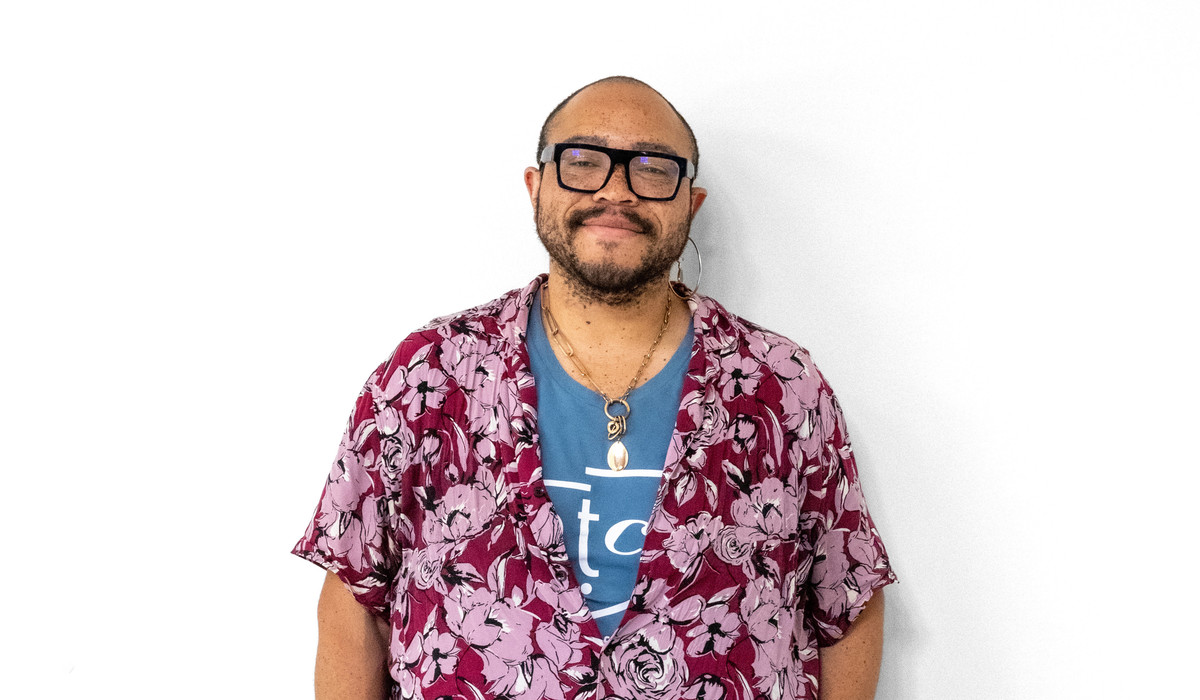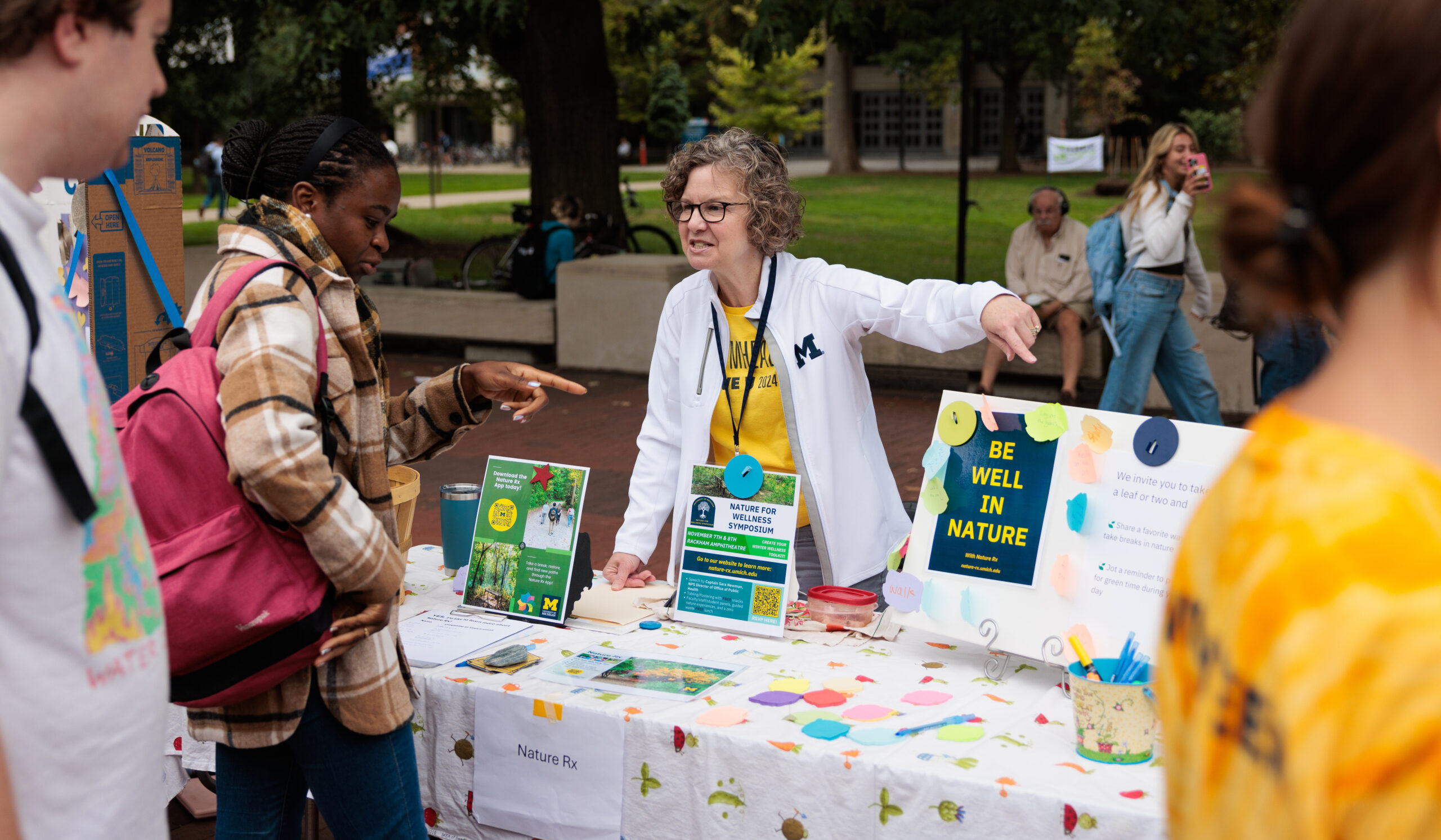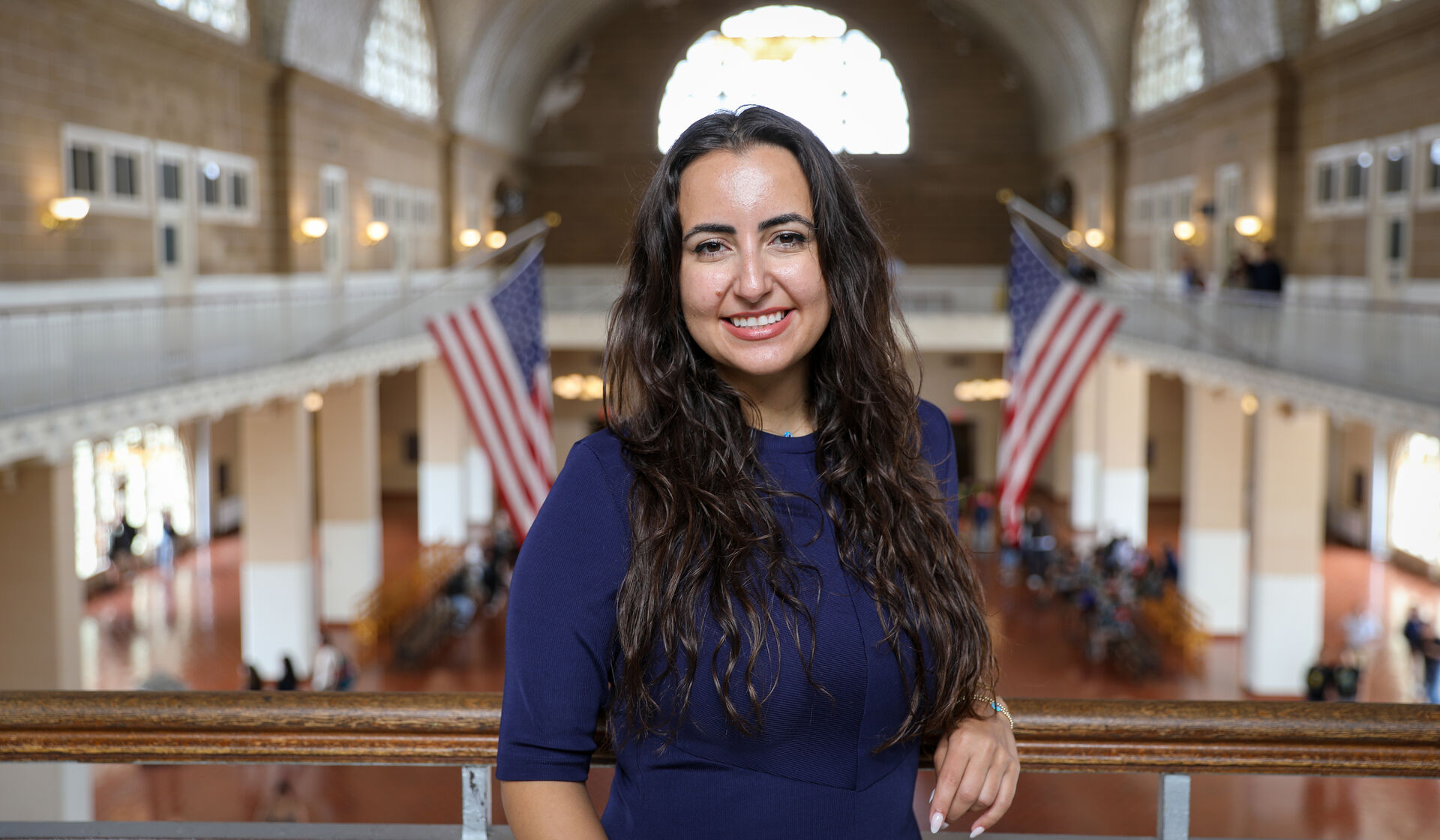IN 2005, AN ELEMENTARY SCHOOL CLASSROOM PUT ON A groundbreaking performance of “13 Colonies.” Students sang the story of our nation’s founding, with many liberties to historical fact—one being that a Black child played Benjamin Franklin. Though it was a decade before the debut of a Broadway musical with a similar premise, the reality of race in our country’s birth became innocently, yet uncannily, present as my freckled, Black Benjamin Franklin sang about publishing Poor Richard’s Almanac. My performance could not change history, but hearing the puzzling comments made by audience members that evening, I began to understand that the choices we make about how to tell stories can have a profound impact on what is or is not remembered—and what’s made possible.
When my family dropped me off for the first time at U-M, the Alumni Center was my first destination on campus. LEAD became my first family away from home and its activities gave me my first leadership roles. And although this opportunity cannot change history, let me share my story of its possibility.
Fast forward almost two decades from “13 Colonies.” I’m working in Washington, D.C., as a part of a public health fellowship. On paper, I help to manage a crisis hotline and train volunteers to support our clients—sex workers and drug users— with compassion, dignity, and without judgment. But in practice, my work was storytelling, whether it was a training session on linking clients to care or developing in-the-moment strategies for someone experiencing crisis. My work ensured clients left an interaction with a story that offered them the possibility for positive change. Stories of oppression and stigma are tales of limitation and impossibility, but stories of healing are those of persistent opportunities for change despite all odds.
After the fellowship, I returned to Ann Arbor. I started a position as the assistant director of the U-M Educational Theatre Company, where my team crafted stories to educate and empower incoming students to embrace values of diversity, equity and inclusion. Through theater workshops, we equipped them with the knowledge and skills to transform the narrative of the campus community, rooting their actions in their values and practicing bystander intervention to prevent sexual misconduct.
COVID-19 challenged me to integrate technology into trauma-informed frameworks and arts-based learning. I designed a choose-your-own-adventure game, led a production team to create interactive learning videos, and, recently, served as creative director/writer for a queer digital media series for the U-M Museum of Art. Starting this summer, I’m thrilled to begin a Master’s of Education program in Learning Design, Innovation, and Technology at Harvard University.
The most important thing that I’ve learned on my journey is that stories of possibility are, necessarily, stories of community. Thank you, LEAD, for offering me the chance to add my experiences to the collective Michigan story.
The LEAD Scholars program provides scholarships to Black, Latinx, and Native American students who have been accepted into U-M. Visit umalumni.com/LEAD to learn how you can support the program and, thus, help create a more diverse campus.





